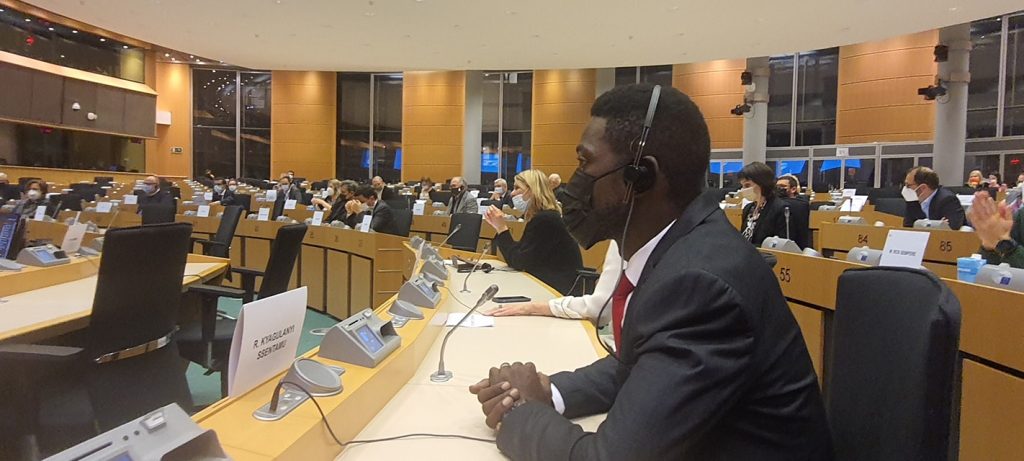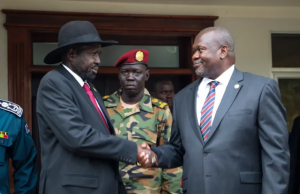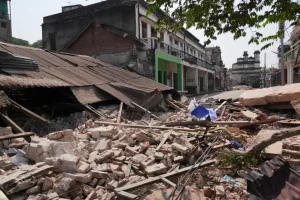
The European Parliament came up with a joint statement resolution on violations of human rights in Uganda and Tanzania linked to investments in fossil fuels projects.
The wrongful imprisonment of human rights defenders, the arbitrary suspension of NGOs, arbitrary prison sentences and the eviction of hundreds of people from their land without fair and adequate compensation.
The EU parliament resolution passed on Thursday warned the government of Uganda of human rights abuses and the social and environmental risk posed by the Eacop project, destroying of over 100000 people’s home to facilitate the construction of access roads or the processing plant.
Office of the president trashes Salim Saleh’s death allegations.
ALSO READ: It’s dangerous but noble -Bobi Wine on traveling to Ukraine
The EU parliament advised its member states not to provide any diplomatic or financial support to Uganda’s oil and gas projects.
It should be remembered that the National Unity Platform (NUP) president Robert Kyagulanyi Sentamu alias Bobi Wine at the start of this year in February asked the European Union (EU) to re-evaluate its partnership with Uganda, putting focus on the citizens and not government.
Resolutions
Expresses its grave concern about the human rights violations in Uganda and Tanzania linked to investments in fossil-fuel projects, including the wrongful imprisonment of human rights defenders, the arbitrary suspension of NGOs, arbitrary prison sentences and the eviction of hundreds of people from their land without fair and adequate compensation; expresses its concerns about the arrests, acts of intimidation and judicial harassment against human rights defenders and NGOs working in the oil and gas sector in Uganda; asks the authorities to ensure human rights advocates, journalists, and civil society groups are free to carry out their work in at-risk communities and calls for all arbitrarily arrested human rights defenders to be released immediately;
2. Calls on the governments of Uganda and Tanzania to initiate concrete measures to ensure that authorities, security forces and policies respect and comply with human rights standards; insists, in particular, that the EU and other international actors maintain and strengthen their integrated and coordinated approach on Uganda, which includes the promotion of good governance, democracy and human rights, and the strengthening of the justice system and rule of law, and urges the EU and its Member States to raise these concerns through public and diplomatic channels; urges the Ugandan Government to reauthorise the 54 NGOs that have been arbitrarily closed or suspended, and to grant those people who have been displaced without receiving fair and adequate compensation access to their land;
3. Recalls that more than 100 000 people are at imminent risk of displacement as a result of the EACOP project without proper guarantees of adequate compensation; urges that those evicted or denied access to their land be compensated promptly, fairly, and adequately, as provided for in the Ugandan Constitution and as promised by the companies; asks the authorities to take further steps to adequately compensate people for lost property and land, protect local communities’ rights to health, their environment, livelihoods, and civic freedoms, and provide redress to those affected by oil operations in past decades; calls on both governments to update domestic laws on land acquisition, valuation, and resettlement to ensure they align with regional and international standards, including the right to free, prior and informed consent;
4. Reiterates its call on the Ugandan authorities to allow free, meaningful and unhindered access to the oil zone for civil society organisations, independent journalists, international observers and researchers;
5. Reiterates its call for a strong and ambitious directive on mandatory corporate due diligence and an ambitious legally binding international instrument to cope with human rights, environment and climate obligations, as outlined in its resolution of 10 March 2021 with recommendations to the Commission on corporate due diligence and accountability[1];
6. Calls for the EU and the international community to exert maximum pressure on Ugandan and Tanzanian authorities, as well as the project promoters and stakeholders, to protect the environment and to put an end to the extractive activities in protected and sensitive ecosystems, including the shores of Lake Albert, and commit to using the best available means to preserve the culture, health, and future of the communities affected and to explore alternatives in line with international climate and biodiversity commitments; calls on the promoters of the EACOP project in Uganda and Tanzania to resolve all disputes that should have been resolved prior to the launch of the project, and to take into account all the above-mentioned risks, threatening this project; urges TotalEnergies to take one year before launching the project to study the feasibility of an alternative route to better safeguard protected and sensitive ecosystems and the water resources of Uganda and Tanzania, limiting the vulnerability of the watersheds in the African Great Lakes region, which is a critical resource for the region, and to explore alternative projects based on renewable energies for better economic development;
7. Instructs its President to forward this resolution to the Council, the Commission, the Vice-President of the Commission / High Representative of the Union for Foreign Affairs and Security Policy, the European Union Special Representative for Human Rights, the President of the Republic of Uganda, the President of the Republic of Tanzania and the Speakers of the Ugandan and Tanzanian parliaments.
SOURCE: EUROPEAN PARLIAMENT





